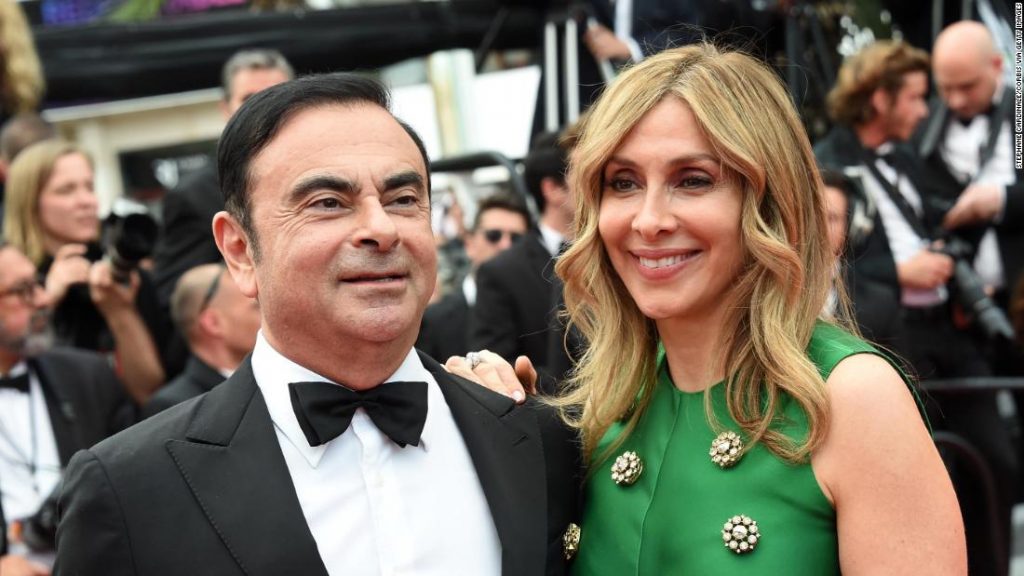Tokyo: Prosecutors in Japan obtained Tuesday an arrest warrant for Carole Ghosn, wife of former Nissan chief Carlos Ghosn, who last month jumped bail and fled the country.
The warrant was issued as the fallout from the escape of one of Japan’s most high-profile criminal suspects continues, with authorities pledging tighter border controls and seizing the bail money that Ghosn forfeited by fleeing the country.
Ghosn had been facing trial in Japan on charges of financial misconduct, which he denies, before fleeing the country in late December for Lebanon, where he was reunited with his wife.
In a statement, prosecutors said they had obtained the warrant on suspicion that Carole Ghosn ‘made false statements’ during his April testimony to the Tokyo district court about meetings with an unnamed individual.
A spokesperson for the Ghosn family called the warrant ‘pathetic’ and implied it was a response to a press conference the tycoon is due to give Wednesday in Beirut.
Ghosn’s second wife, Carole vocally led the campaign for her husband’s freedom, insisting on his innocence and slamming Japanese prosecutors for what she deemed ill-treatment after his shock November 19, 2018 arrest.
She was initially prevented from seeing her husband, who was held in detention for more than 100 days after his arrest, and petitioned everyone from French President Emmanuel Macron to the White House in seeking his release.
The warrant for Carole’s arrest comes as Japanese authorities piece together how Ghosn was able to evade surveillance and airport security.
Snippets have emerged suggesting he was aided by a security expert, and took advantage of loopholes in security at Japan’s Kansai airport.
Ghosn appears to have left his residence in Tokyo, which was monitored by surveillance cameras under his bail conditions, alone. He reportedly later met up with two US citizens and boarded a bullet train to Osaka, December 29.
In Osaka, he is reported to have been put into a large box with holes drilled into it to ensure he could breathe and then loaded onto a private jet that flew to Istanbul.
Airport security rules meant large items loaded onto private planes were exempt from screening – a loophole that appears to have allowed Ghosn to escape unnoticed.
In Istanbul, he boarded a second private jet that took him to Lebanon, where he entered on a French passport.
AFP
